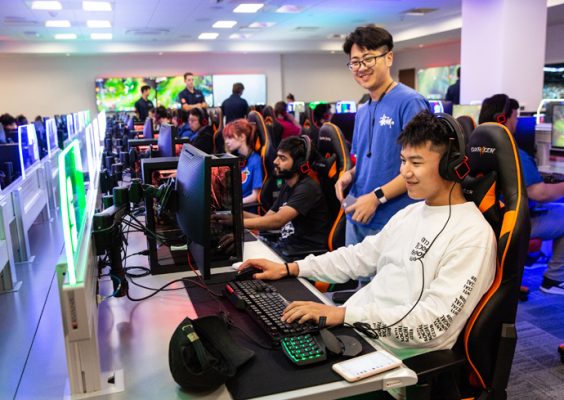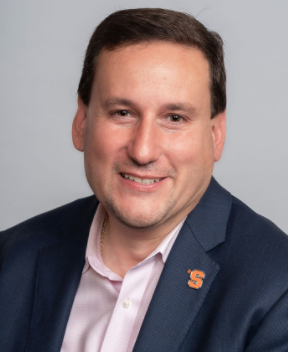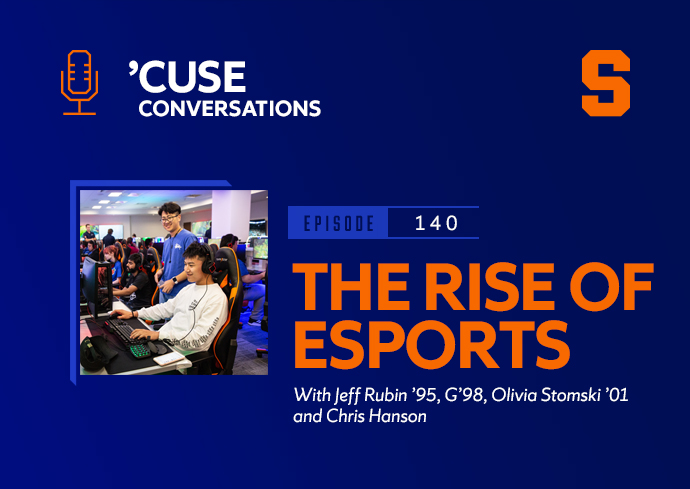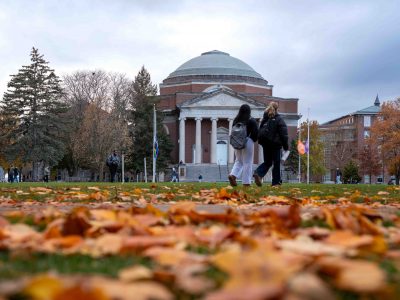How the Rising Popularity of Esports Led to Syracuse University’s Newest Degree Program on the ‘’Cuse Conversations’ Podcast

Electronic sports, or esports, has seen a remarkable spike in popularity over the years, with a recent study from Pew Research finding that 90% of teenagers between the ages of 13 and 17 play video games.
Seeking to both capitalize on the tremendous popularity of esports and continue to innovate, expand career options in emerging fields and deliver academic programs that meet its students’ needs, Syracuse University will soon begin offering a new, first-of-its-kind degree program focused on esports.
The esports communications and management program, offered jointly by the S.I. Newhouse School of Public Communications and the David B. Falk College of Sport and Human Dynamics, will include three tracks:
- esports business and management, covering such topics as sport promotion, sport venue management and finance for emerging enterprises;
- esports communications, including coursework in virtual reality storytelling, esports and advertising, public relations principles and sports in the metaverse; and
- esports media and design, focused on 3D animation, game experience design and virtual production.

The University will begin enrolling students in the program in fall 2024 and is currently searching for an executive director of esports.
The program taps into the rapidly growing, multibillion-dollar esports industry, serving as a continuation of the work already happening on campus.
For nearly two years, Jeff Rubin ’95, G’98, special advisor to the chancellor on esports and digital transformation, worked alongside faculty and deans from the Falk College and Newhouse School to research and develop the hands-on, innovative program that will be dually owned and operated by both colleges.
Elaborating on the three program tracks, Rubin says, “You can take a very business-centric approach to esports. You can take a communication-centric approach, such as shoutcasting [broadcasting an esports event]. You can take a technical approach, such as game development. You could take a design-centric approach such as computer graphics or animation. We can look at esports in the metaverse—now we’re dealing with virtual reality and augmented reality.
“There’s not a mold that says when you graduate with this degree, this is where you’re going to end up. I think it’s quite the opposite. That’s why it was so important that we create those tracks, to allow students flexibility to choose the path that makes the most sense for them,” he says.
Joining Rubin on the University-wide task force charged with conducting the benchmarking that led to the creation of the esports program were:
- Olivia Stomski, professor of practice of television, radio and film and director of the Newhouse Sports Media Center;
- Chris Hanson, associate professor of English in the College of Arts and Sciences;
- Rachel Francisco, assistant director of academic operations in the Newhouse School;
- Gina Pauline, associate professor and undergraduate director of sport management in the Falk College;
- Rick Burton, David B. Falk Endowed Professor of Sport Management;
- Eileen Lantier, Falk College senior associate dean; and
- Kelly Pettingill, Falk College academic operations manager.
Stomski and Hanson have co-taught the interactive and innovative Esports and Media class since 2018.
On this ’Cuse Conversation, Rubin, Stomski and Hanson reveal why the time was right for Syracuse University to add an esports degree program, share how the new academic offering will position students for success once they graduate, explain the research that went into creating this program and discuss the rapid growth of esports on campus.
Check out episode 140 of the “’Cuse Conversations” podcast featuring Jeff Rubin, Olivia Stomski and Chris Hanson. A transcript [PDF] is also available.



